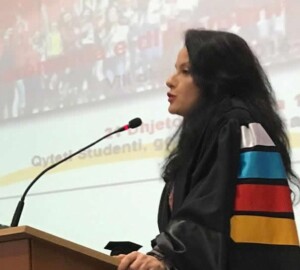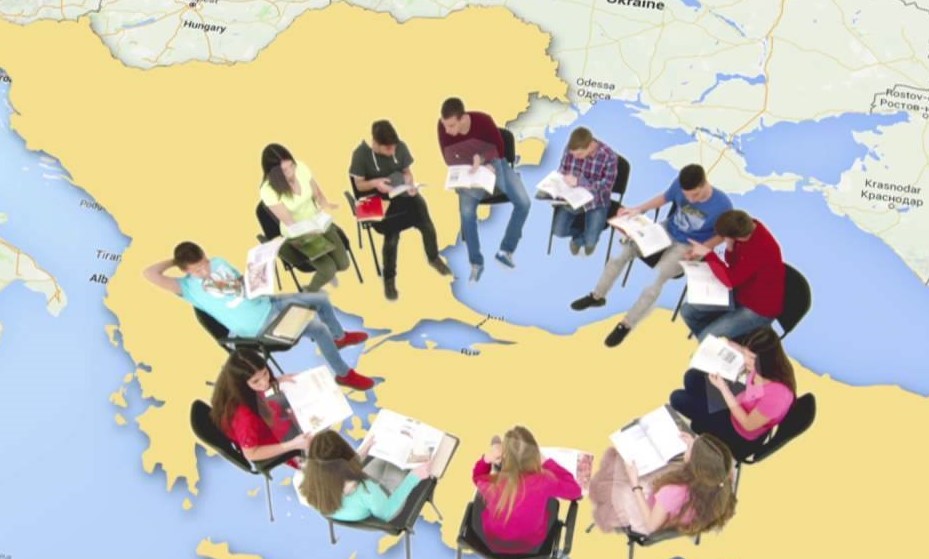We are used so much to the causal relation of the identity, as almost we are not even surprised by the fact that in the terrorist attack in Vienna – a victim, a police officer and the aggressor had the same ethnic identity.

Writen by: Eva Hyskaj Tafili
Neighborhood in our region, similar as almost all of the range of interethnic and interstate relations, it is highly influenced by the interaction of the different identities, whether those of a national nature or those of a religious and political nature. Seen from a romantic point of view, the presence of many identities should play the main role as a factor that brings diversity to the life and to the relations between the nations and the countries in the Balkan Peninsula. In this sense, no little was done, especially in the first decade of the 21st century, but in order the region to enter a period when finally a Pax Balcanica will prevail, seems as we are all left with much more to do. Because of the past, whether the Medieval Period or the recent past, the nations and the religious groups in the Balkans most of the time have been in a silent hostility among themselves, but from time to time the consequences of that hostility have manifested as a storm in a clear blue sky, and in this way not only that the fragile balance of coexistence was damaged, but also it opened a path for the periods of bloody wars that had consequences not only in the vital and economical aspects of life, but also in the social and political ones. We are used so much to the causal relation of the identity, as almost we are not even surprised by the fact that in the terrorist attack in Vienna – a victim, a police officer and the aggressor had the same ethnic identity.
Identity, “differently to the above-mentioned definition that it is commonly accepted”, seems variable according to the different situations in which the person lives. The foundation of norms and the source for life activity and later political activity, seems as not only in our region, but in the whole world, it is shaken because of the pandemics and the unusual situation as a result of it. At times when the Covid 19 pandemics requires social distancing, you can feel in fact that the people tend to break barriers, be they political, border or social barriers. Disasters and massive joys in the Balkans have always brought us together and because of them often wars were stopped and bridges of interaction were built. Despite this, the flow of life follows its own direction even in this difficult situation for the whole region, where it seems that besides the news about the victims of the pandemics, the focus is much more on the politics, which seems to attract our attention no matter what.
In this sense, the shock of this pandemic autumn is the resignation of Thaçi. Neither more nor less sensational than the resignation of R. Haradinaj during the previous summer, this resignation of Thaçi now also seems as a wish to be represented as an ordinary citizen in front of the Special Prosecutor’s Office, without any institutional responsibility. Back then Haradinaj was investigated and was declared innocent. Will Thaçi have the same fate? After the resignations of Thaçi and Veseli, Haradinaj himself is calling on strengthening the unity, so Kosovo could successfully face the new institutional challenges. Every time that unity is the topic, it is felt that the identity, especially the national identity, has changed a little bit. Since all types of identities are interconnected, we can hope that Kosovo, with which we share the same national identity, will become also an example for the political and social identity. The process of resignation and holding of responsibility as an ordinary citizen is not a popular phenomenon in the region, especially not in Albania, so the repetition of this phenomenon by the Albanians of Kosovo maybe it would motivate all Albanians and all of the Balkans towards a new identity, political and social approach.
Eva Hyskaj Tafili is a lecturer at the Tirana University , Faculty of History and Philology. She graduated in Tirana University than she attended post graduate studies in KU Leuven Belgium, CEU Budapest, Siena University etc . Her phd thesis focuses on Nationalisms in post comunist Balkans. Her main publications are also focused in Balkans history, identites, political transitions and current policies.



Leave A Comment